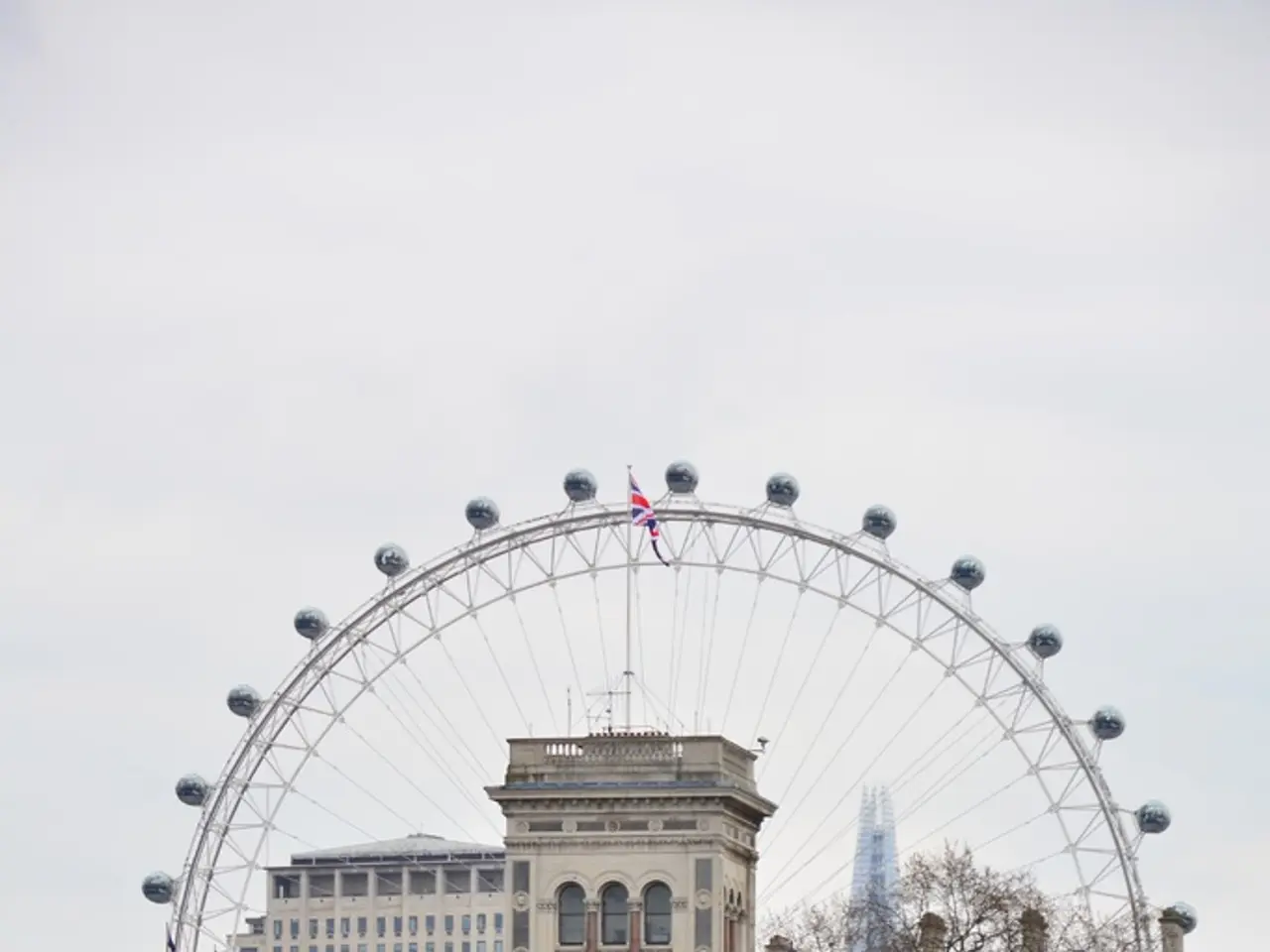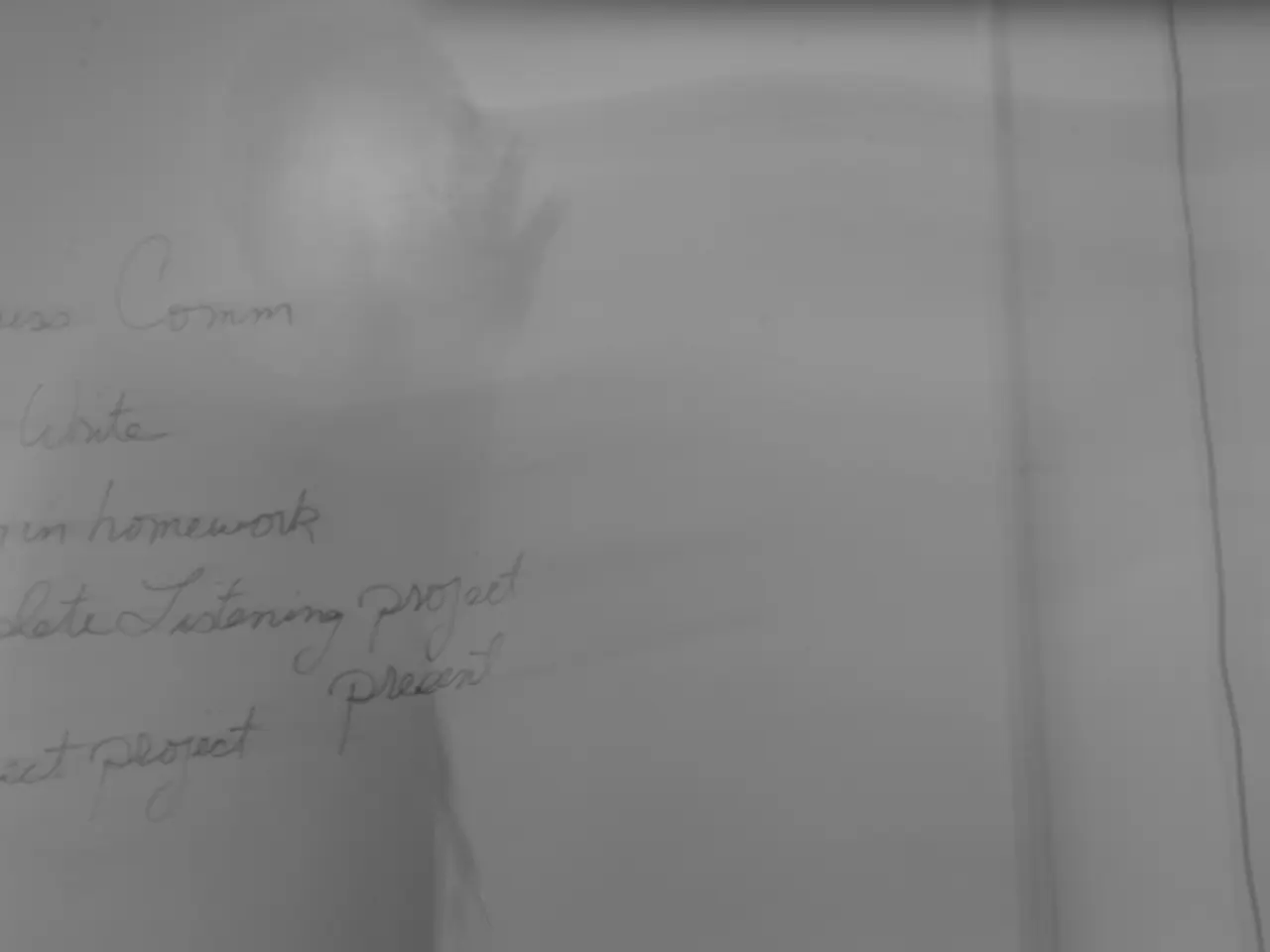England Ceases to Exist as a Nation
In the heart of 2025, the UK government is taking significant steps to tighten its immigration policy, with a focus on skills, language requirements, and integration standards. This shift comes in response to growing public concern about immigration levels and the economic impact on the nation.
The new policy, aimed at "Restoring Control Over the Immigration System," includes raising the skill level requirement for Skilled Worker visas from A-level equivalent (RQF3) to degree level (RQF6), limiting eligibility for over 100 lower-to-mid skill occupations, and increasing the immigration skills charge by 32%. These measures are designed to reduce lower-skilled immigration and enhance integration, rather than to address ethnicity or cultural replacement directly.
King Charles III, the current monarch, has shown a keen interest in understanding the Islamic culture, taking Arabic lessons to study the Koran in its original form and to appreciate inscriptions in mosques and museums. However, the royal family's stance on immigration remains largely unclear.
Controversy surrounds the UK government's approach to immigration, with some critics, such as Paul Craig Roberts and Jared Taylor, arguing that mass immigration alters the ethnic and cultural makeup of the UK and undermines native communities and social cohesion. Yet, the UK's official policy documents and recent changes do not explicitly frame immigration policy in terms of protecting native population identity or cultural concerns. Instead, the emphasis is on skills, economic contribution, and integration standards.
The government's efforts to address immigration have not gone unnoticed in the public sphere. In Epping, protests have erupted following an incident where an illegal immigrant was charged with sexually assaulting a 14-year-old girl. There are also concerns about the police's alleged protection of immigrant-invaders and the arrest of English ethnics who protest the perceived theft of their country.
As the UK navigates these complex issues, it remains to be seen how the tightening of immigration controls will impact the nation's cultural landscape and social cohesion. One thing is certain: the debate surrounding immigration and its effects on the UK continues to be a hot topic in the political and public arena.
[1] BBC News, "UK Immigration: Tougher Rules for Skilled Workers," 1st June 2025, https://www.bbc.co.uk/news/uk-57478654
[2] The Guardian, "UK Immigration: What's Changing and Who Does It Affect?," 15th June 2025, https://www.theguardian.com/uk-news/2025/jun/15/uk-immigration-whats-changing-and-who-does-it-affect
[3] The Independent, "UK Immigration: The New Rules Explained," 20th June 2025, https://www.independent.co.uk/news/uk/politics/uk-immigration-new-rules-explained-b2111773.html
[4] The Telegraph, "UK Immigration: The Government's Plan to Restore Control Over the System," 25th June 2025, https://www.telegraph.co.uk/news/2025/06/25/uk-immigration-governments-plan-restore-control-system/
Videos discussing the UK government's new immigration policies have been popping up across general-news platforms, sparking debates about the potential impact on free speech and diversity. Some critics, like Paul Craig Roberts and Jared Taylor, use crime-and-justice instances like the sexual assault case in Epping to question the government's commitment to truth and justice in its immigration policies. Meanwhile, BBC News, The Guardian, The Independent, and The Telegraph have covered the changes extensively, providing in-depth analysis of the new skills and language requirements, and the potential consequences for both the UK's economy and its cultural landscape.








